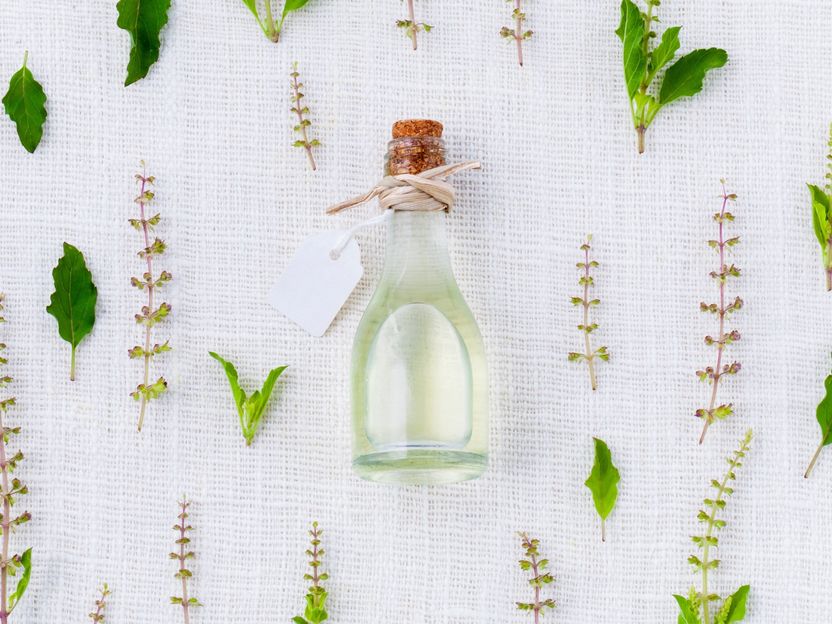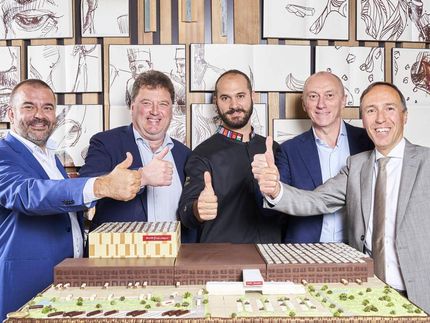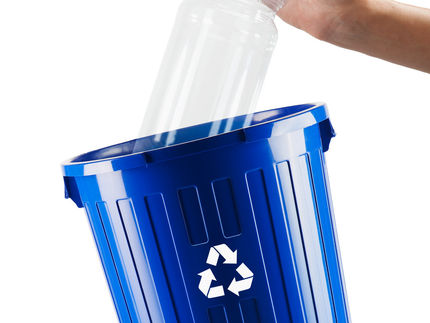A beverage sector in flux works on sustainable bottle concepts for the future
No other issue is currently of greater concern to drinks manufacturers than the choice of material for bottles
In the beverage sector, the development of new forms of packaging is enjoying unprecedented momentum. Because despite their many benefits, the general suspicion about plastic bottles is that sooner or later they end up polluting the natural environment. This explains why consumers are increasingly opting for glass bottles. As the Action Forum Glass Packaging (Aktionsforum Glasverpackung) reports, the sales volume in tons of glass containers increased by 0.9 percent in the first half of 2020 compared with the same period in the previous year. The industry enjoyed a significant growth in sales of 27.8 percent, particularly in glass containers for non-alcoholic beverages like water, milk and juice.

Unsplash
Beverage giant Coca-Cola has recognised the signs of the times and invested in two glass bottling plants (source in German) in Germany. The group can count on sales not just due to environmental concerns but because customers are nostalgic about the bulbous bottles they remember from their childhood or from films. However, the company plans to stick to its packaging mix of glass and PET bottles, because even PET bottles can be collected, cleaned and re-used multiple times via recycling systems. Thanks to its low weight and less energy-intensive recycling, PET material is gaining ground over glass in respect of environmental footprint.
However, manufacturers can still get more out of PET bottles, as Karl Knauer, a packaging company based in the Black Forest, has shown. In partnership with system vendor Krones, the company’s invention of the “LitePac Top” has taken it to the finals of the German Sustainability Award 2021 (source in German). Instead of the usual plastic shrink wrap, the beverage containers are held together by the “LitePac Top” cardboard carrier. The shrink wrap packaging is replaced by the cardboard carrier and a paper strap. The jury acknowledges the ecological benefits of material and energy savings achieved by this solution. However, the bottles packaged using this method are still made of PET.
Bottles ideally suited to circular economy
PET bottles only become a problem if they cannot be recycled into high-quality products or disappear from the material loop for other reasons, e.g. due to thermal recovery in waste incinerators. Ideally, a new PET bottle would simply be produced from an old one. PepsiCo Deutschland (source in German) is committed to this objective and aims to be the first beverage company in Germany to make exclusive use of 100 percent recycled plastic (PET) for its bottles by the end of 2021. The company intends to invest €7 million in the switch to recycled plastic and as a result save 15,000 metric tons of virgin plastic a year. In doing so, PepsiCo is improving on its previously announced target of using 50 percent rPET in the entire European Union by 2030.
Governments exerting pressure on single use packaging
Not every deposit bottle is also part of a recycling system. Once used, they are returned via the collection facilities to the recycling loop for PET. To increase this proportion even more, the German Federal Council advocated in March 2020 (source in German) that the mandatory deposit should be extended to all disposable bottles for drinks. In this context, the Council called on the German government to adopt appropriate regulations in the imminent amendment of the German Packaging Law associated with the implementation of the European Single-Use Plastic Directive (2019/904/EU). The potential new regulation would not just affect plastics, but also certain beverage cans not yet covered by a mandatory deposit.
Many drinks manufacturers are also continuing to use aluminium or tin cans because they offer unrivalled properties for protecting the product. For example, breweries like to use metal packaging because beer loses flavour when exposed to light. The problem is that the cans cannot simply be recycled into new drinks cans because of a loss of quality. Ball Corporation has addressed this drawback with its Infinity Aluminium Bottle (source in German), a bottle that is infinitely recyclable. It consists of impact extruded aluminium that is suitable not just for beverages but also for shampoos and conditioners, soap, body cremes, spirits, energy shots, yoghurt, dressings, syrups, spices and other products.
Last year, leading brewery Carlsberg launched a completely new concept, a paper beer bottle made from sustainably sourced wood fibres. The bottle is currently lined inside with a polymer film barrier, which means that it is composite packaging, with all the drawbacks that entails for recycling. However, the Danish group has announced that it is working on a solution without plastics.
Whereas some of these developments tend to be niche products, the efforts being made do show that there is a lot happening in this area in the industry. Apart from the above-mentioned companies, every major company – including Danone, Nestlé and the like – is working on new, sustainable packaging concepts. In this context, the manufacturers can draw on the expertise of suppliers of packaging materials, packaging machines, design and logistics services that will no doubt have some surprising new developments for sustainable beverage packaging in store at FACHPACK 2021. One opportunity to discuss innovative and inspiring packaging topics within the beverage sector is the new digital dialogue platform myBeviale.com, which is set to launch at the beginning of November 2020 and will be available all year round.































































